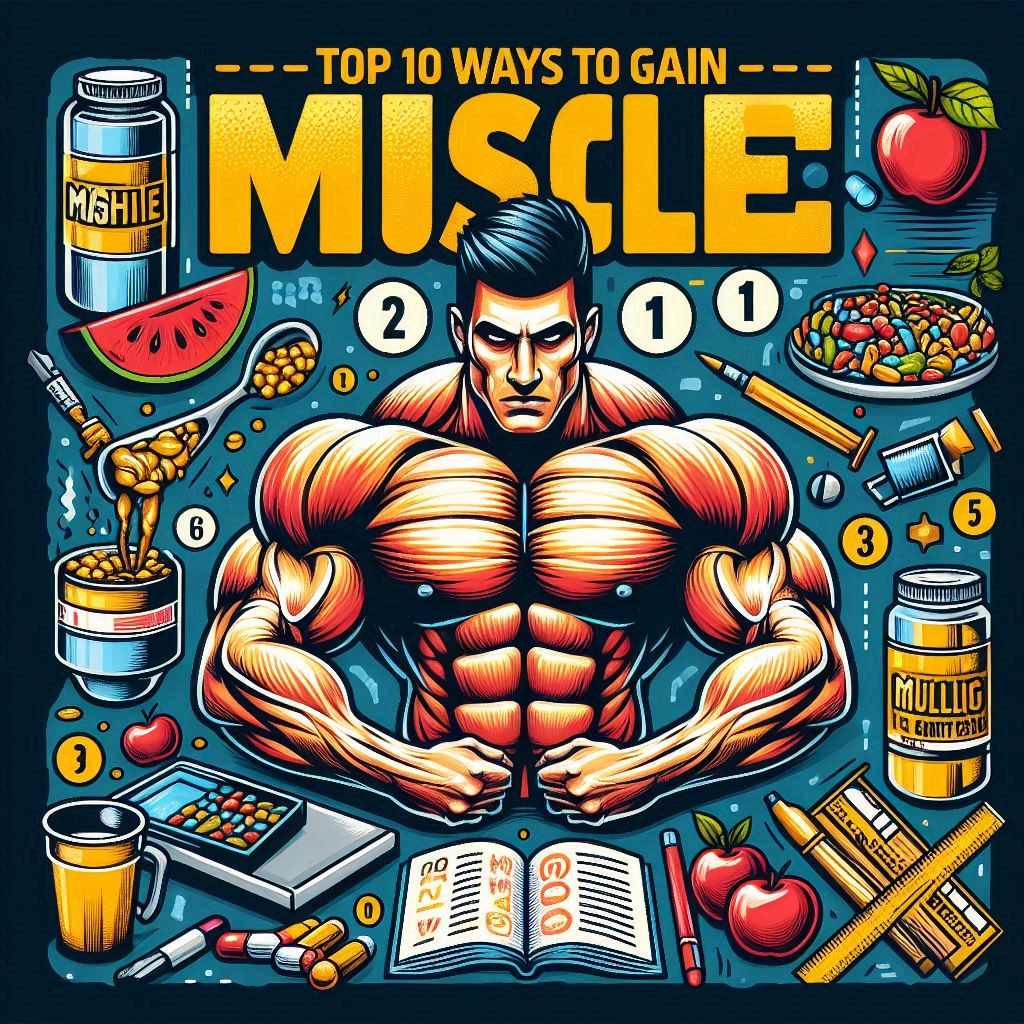In the pursuit of muscle gain and strength development, nutrition plays a pivotal role alongside physical training. This compilation of the Top 10 Nutritional Ways to Gain Muscle offers actionable strategies to support muscle growth and recovery. Prioritizing protein-rich foods such as lean meats, poultry, fish, eggs, and plant-based sources like legumes and tofu provides essential amino acids necessary for muscle repair and synthesis. Additionally, consuming carbohydrates before and after workouts replenishes glycogen stores and fuels intense training sessions, while healthy fats aid in hormone regulation and cellular function. Including ample fruits and vegetables ensures a steady supply of vitamins, minerals, and antioxidants, supporting overall health and immune function amidst rigorous training. By optimizing nutrient intake and timing, individuals can maximize their muscle-building potential and achieve their fitness goals more effectively.
- Protein-Rich Foods: Include high-quality protein sources in your diet such as lean meats (chicken, turkey, beef), fish, eggs, dairy products (Greek yogurt, cottage cheese), legumes (lentils, chickpeas, beans), and tofu.
- Complex Carbohydrates: Fuel your workouts and support muscle growth with complex carbohydrates like whole grains (brown rice, quinoa, oats), starchy vegetables (sweet potatoes, corn, squash), and fruits (bananas, berries, apples).
- Healthy Fats: Incorporate healthy fats into your meals to support hormone production and overall health. Choose sources like nuts (almonds, walnuts), seeds (flaxseeds, chia seeds), avocados, and olive oil.
- Calorie Surplus: Consume slightly more calories than your body burns to provide the energy needed for muscle growth. Aim for a surplus of 250-500 calories per day, primarily from nutrient-dense foods.
- Frequent Meals: Eat regular meals and snacks throughout the day to ensure a steady supply of nutrients for muscle repair and growth. Aim for 4-6 meals/snacks spaced evenly apart.
- Post-Workout Nutrition: Consume a combination of protein and carbohydrates within 30-60 minutes after your workout to replenish glycogen stores and promote muscle recovery. This could be a protein shake or a meal with lean protein and complex carbohydrates.
- Hydration: Stay hydrated to support optimal muscle function and recovery. Drink plenty of water throughout the day, and consider electrolyte-rich beverages like coconut water after intense workouts.
- Supplementation: Consider supplementing with protein powder, creatine, and branched-chain amino acids (BCAAs) to support muscle growth and recovery. However, prioritize whole foods first before turning to supplements.
- Balanced Meals: Aim for balanced meals that include a combination of protein, carbohydrates, and fats, along with plenty of fruits and vegetables to provide essential vitamins, minerals, and antioxidants.
- Consistency: Consistently follow a well-rounded nutrition plan that supports your muscle-building goals. Make gradual adjustments based on your progress and listen to your body’s hunger and satiety cues.
By incorporating these nutritional strategies into your diet, you can optimize muscle growth, strength gains, and overall performance. Remember to pair your nutrition plan with a consistent exercise regimen that includes resistance training for best results.







